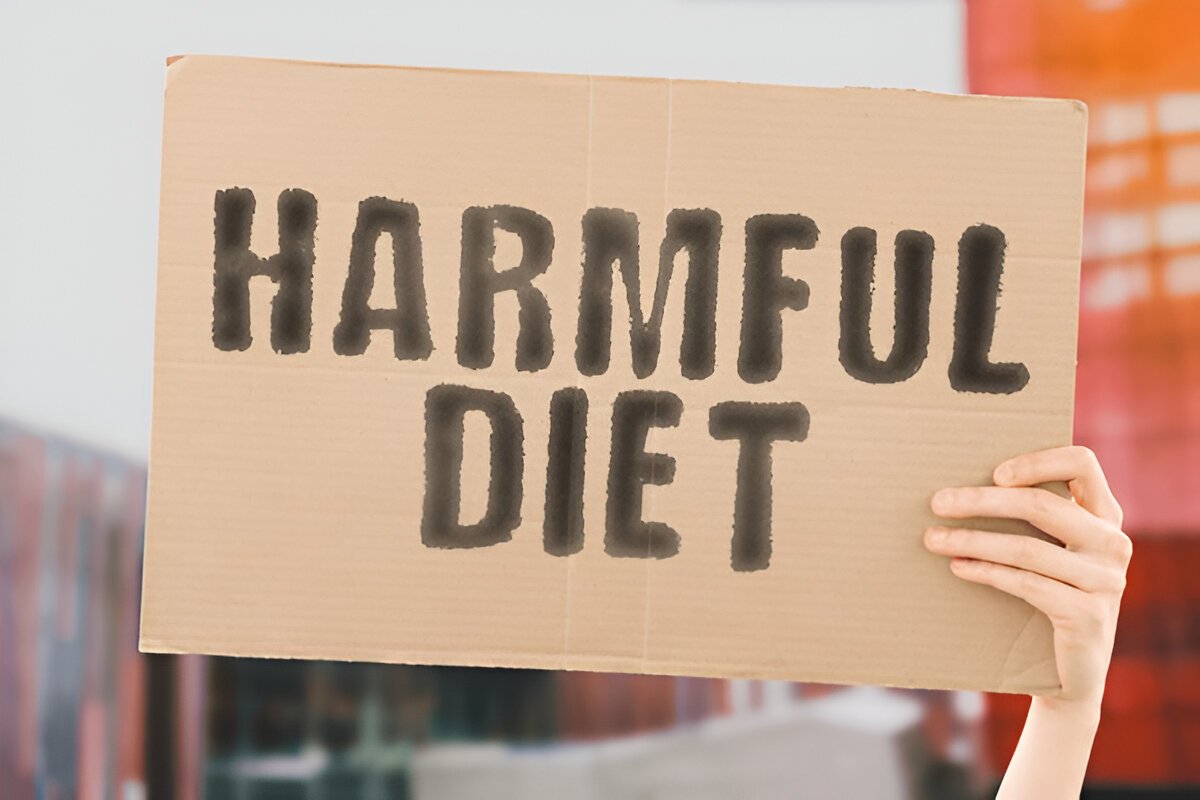Crash diets, characterized by extremely low caloric intake and rapid weight loss, often promise quick results for those looking to shed pounds quickly. While these diets may seem appealing for their immediate effects, they raise important questions about their long-term efficacy and impact on overall health.
Understanding the true nature of crash diets, their potential benefits and risks, and their role in sustainable weight management is crucial for making informed decisions about your health and weight loss strategy?
Understanding Crash Diets
Crash diets are extreme weight loss plans that promise rapid results through significantly reduced calorie intake or restrictive eating patterns. These diets often involve consuming very low calories, eliminating entire food groups, or following rigid meal plans. Popular examples include juice cleanses, detox diets, and very low-calorie diets (VLCDs).
Do Crash Diets Work?
Short-Term Results:
-
Rapid Weight Loss: Crash diets can lead to quick weight loss due to the drastic reduction in calorie intake. However, this weight loss is often primarily from water weight and muscle mass, rather than fat loss.
Limited Effectiveness for Long-Term Weight Management:
-
Temporary Results: While crash diets can produce rapid weight loss, the effects are usually short-lived. Most people regain the weight once they return to their normal eating habits, sometimes gaining more weight than they lost.
-
Metabolic Slowdown: Extreme calorie restriction can slow down your metabolism, making it harder to maintain weight loss and easier to regain weight once the diet ends.
The Reality of Crash Diets
-
Rapid Weight Loss: Crash diets can lead to significant weight loss in a short period due to severe caloric restriction. This rapid loss often includes not only fat but also muscle mass and water weight. While this might seem appealing, the initial weight loss is rarely sustainable.
-
Nutrient Deficiency: Many crash diets are nutritionally unbalanced and can lead to deficiencies in essential vitamins and minerals. The lack of variety in these diets often results in inadequate intake of nutrients necessary for overall health and bodily functions.
-
Metabolic Slowdown: Extreme caloric restriction can slow down the metabolism as the body adapts to conserve energy. This metabolic slowdown can make it more difficult to lose weight and easier to gain it back once normal eating patterns are resumed.
-
Potential Health Risks: Crash diets can pose several health risks, including fatigue, dizziness, dehydration, and digestive issues. Prolonged use of such diets may also impact heart health, kidney function, and electrolyte balance.
-
Short-Term Results: While crash diets may provide quick weight loss, they often do not promote long-term weight management. Once the diet ends, individuals may revert to old eating habits, leading to weight regain and sometimes even more weight than initially lost.
-
Impact on Mental Health: The restrictive nature of crash diets can contribute to stress, anxiety, and an unhealthy relationship with food. The focus on rapid results rather than sustainable habits may also lead to feelings of failure or frustration.
Weight Loss Supplements Available at PicPax
Sustainable Weight Management
-
Balanced Diet: A balanced, nutrient-rich diet that includes a variety of foods from all food groups supports long-term weight management. Emphasize whole grains, lean proteins, healthy fats, and plenty of fruits and vegetables.
-
Regular Physical Activity: Incorporating regular exercise into your routine helps maintain a healthy weight, build muscle, and improve overall fitness. Aim for a mix of cardiovascular, strength, and flexibility exercises.
-
Behavioural Changes: Developing healthy eating habits and addressing emotional eating are crucial for sustainable weight management. Focus on mindful eating, portion control, and setting realistic goals.
-
Gradual Weight Loss: Aim for gradual weight loss of 1-2 pounds per week. This approach is more sustainable and less likely to result in negative health effects or weight regain.
-
Professional Guidance: Consult with healthcare professionals, such as dietitians or nutritionists, to create a personalized weight management plan that suits your needs and goals.
Conclusion
Crash diets may offer quick weight loss, but they are not a sustainable or healthy approach to weight management. The risks associated with extreme caloric restriction, including nutrient deficiencies, metabolic slowdown, and potential health issues, outweigh the short-term benefits.
For effective and lasting weight management, focus on a balanced diet, regular physical activity, and gradual, healthy lifestyle changes. Prioritizing long-term health and well-being over quick fixes will lead to more sustainable results and a healthier relationship with food and weight management.
Incorporating the right nutritional support, such as PicPax weight loss supplements, can complement a balanced approach to achieving and maintaining a healthy weight.
Pages You Might Like:
Probiotic Supplements | Collagen Supplements | Weight Loss Supplements | Vitamins for Hair Skin and Nails | Fat Burning Supplements | Multivitamin For Men | Multivitamin For Women



